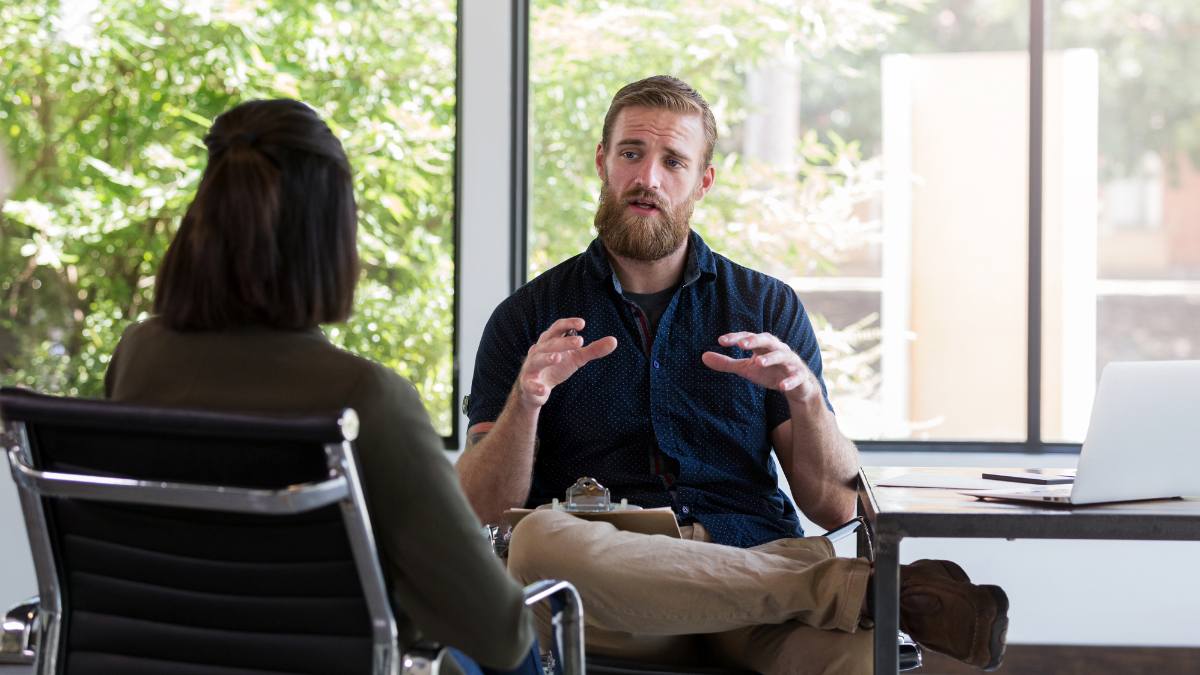How Does Rehab Work?
Once a person is ready to seek help for an addiction, there are many considerations, and the process may seem overwhelming. Common questions are ‘How does rehab work?’ or ‘What happens when you go to rehab?’. Healing in rehab is essential to moving on to a life without drugs and alcohol.
Seeking help for an addiction is a courageous decision and need not be intimidating. A solid knowledge of the basics of rehab and what to expect in rehab is beneficial to those considering reaching out for the first time and helping them begin the process of life in recovery.
What Exactly is Rehab?
Rehab is a structured program designed to help individuals struggling with addiction overcome their dependency on substances like drugs and alcohol and rebuild their lives.
This therapeutic process typically involves a combination of medically supervised detoxification to manage withdrawal symptoms safely.
Additionally, there’s individual and group counseling to address the underlying psychological factors of addiction and various forms of therapy such as cognitive-behavioral therapy, family therapy, and holistic approaches.
Rehab programs also focus on preventing relapse, improving life skills, and improving overall well-being.
To help you understand how drug rehab works for addiction treatment, it’s worth noting that according to SAMHSA, in 2023, 7 out of 10 adults with a substance abuse disorder (SUD) went into recovery. Seeking rehab is a courageous decision, and no one is ever alone in this life-changing decision.

Levels of Care to Expect in Rehab
If you’re wondering ‘How does rehab work?’, know that a significant part of what happens in rehab is determined by the levels of care provided. In rehab, individuals can expect a continuum of care tailored to their needs, ranging from detoxification to aftercare support.
These services typically include detox, inpatient or residential treatment, outpatient programs, and ongoing support groups, ensuring comprehensive treatment and a smooth transition back to everyday life.
These programs cater to drug and alcohol addiction, and dual diagnosis at different recovery stages. Additionally, these programs incorporate holistic therapies, support groups, and educational workshops and include:
Partial Hospitalization Program (PHP)
PHP provides individuals with intensive treatment for addiction or mental health disorders while allowing them to return home in the evenings. This structured program typically involves therapy sessions, medication management, and educational workshops during the day, providing comprehensive care while allowing individuals to maintain daily routines. PHP is a good option for those requiring a higher level of support than outpatient treatment but do not need 24/7 supervision in a residential setting.
Intensive Outpatient Program (IOP)
For those who have commitments that prevent a full-time residential stay or are transitioning from inpatient care, our IOP offers flexibility without compromising the quality of treatment. Clients receive high-level care and support while maintaining connections with their daily lives.
Outpatient Treatment (OP)
Outpatient treatment is ideal for individuals seeking continued support as they reintegrate into their communities. It includes regular therapy sessions and access to our resources, allowing clients to solidify their recovery in real life.
Each program typically integrates holistic therapies, support groups, and educational workshops, all aimed at addressing the underlying issues of addiction and promoting overall wellness.
How Does Rehab Work on a Typical Day?
Knowing that every rehab center is different is vital for those wondering how drug rehab works. However, every treatment center has similar processes and programs, but there are standard outlines that most centers use for what happens in rehab.
A typical day in rehab is carefully structured to provide individuals with a supportive and transformative environment conducive to healing and recovery. Here’s what to expect:
- Morning Routine: Residents start the day with healthy breakfast options and may participate in mindfulness exercises or group meditation sessions to set a positive tone for the day.
- Therapeutic Activities: Throughout the day, residents engage in individual and group therapy sessions led by licensed professionals, where they explore the root causes of their addiction, learn coping skills, and receive support from peers.
- Educational Workshops: Rehab often includes workshops on addiction science, relapse prevention strategies, and life skills training to empower residents with knowledge and tools for long-term sobriety.
- Recreational Opportunities: Residents have opportunities for recreational activities such as yoga, art therapy, outdoor excursions, or fitness classes, promoting physical health and emotional well-being.
- Healthy Meals: Nutritious meals and snacks are provided throughout the day to support overall wellness and fuel the body and mind.
- Supportive Community: Residents benefit from the support of a caring and empathetic community of peers and staff members who share similar experiences and offer encouragement and accountability.
- Evening Reflection: The day typically concludes with reflection exercises or group discussions, allowing residents to process their experiences, celebrate progress, and set goals for the future.
Overall, a typical day in rehab is structured to provide individuals with a balanced mix of therapy, education, recreation, and community support, laying the groundwork for lasting recovery.

How Long Does Rehab Take?
Factors such as the substances being used, duration of use, and quantity consumed can influence rehabilitation timelines, which vary depending on individual needs and treatment programs.
However, to help answer ‘How does rehab work?’ and what to expect in rehab, here’s a general timeline:
- Assessment: The initial assessment and intake process typically last 1-2 hours.
- Detoxification: Detoxification may last from a few days to a week, depending on the substance and severity of withdrawal symptoms.
- Inpatient or Residential Treatment: Inpatient or residential treatment programs typically last 30 to 90 days, providing intensive, 24/7 care in a structured environment.
- Outpatient Treatment: Outpatient treatment programs may last several weeks to several months, with varying intensity levels and frequency of therapy sessions.
- Intensive Outpatient Program (IOP): IOP programs typically last 6 to 12 weeks, with several hours of therapy sessions per week.
- Aftercare and Ongoing Support: Aftercare and ongoing support groups may continue indefinitely, providing ongoing support for maintaining sobriety and preventing relapse.
Overall, the duration of rehab can range from a few weeks to several months, depending on individual progress and treatment goals.
What To Bring To Rehab
Once the decision to enter rehab is final, a common question remains, “What happens when you go to rehab?”. It’s important to pack thoughtfully to ensure comfort and support during your stay.
Here are some suggestions on what to bring if you’re unsure of how rehab works:
- Personal Identification: Bring your driver’s license or other form of identification and any insurance cards or relevant documents.
- Comfortable Clothing: Pack a week’s worth of comfortable, weather-appropriate clothing, including pajamas, workout attire, and casual wear.
- Toiletries: Bring essential toiletries such as a toothbrush, toothpaste, shampoo, conditioner, soap, and any specific personal care items.
- Prescription Medications: If you have any prescribed medications, bring them in their original containers with clear labels and inform staff members upon arrival.
- Notebook and Pen: Consider bringing a notebook or journal to jot down thoughts, reflections, or goals during your stay.
- Reading Material: Bring books, magazines, or other reading material to occupy your downtime and engage in self-improvement.
- Snacks: Pack a few healthy snacks on hand between meals, but be mindful of any dietary restrictions or guidelines provided by the rehab facility.
- Phone and Charger: Some facilities may allow limited phone use during designated times, so bring your phone and charger if permitted.
- Comfort Items: Consider bringing comfort items such as photos, letters, or a favorite blanket to create a sense of familiarity and support during your stay.
By packing these essentials, you’ll be better prepared to focus on your recovery journey comfortably and confidently.

How Does Rehab Work at Lexington Addiction Center?
If you or a loved one have questions about how rehab works, our dedicated team can help you. We understand how harmful addiction to substances can be to a person’s overall health and well-being. That’s why we invite you to rediscover the joy of living through rehab at Lexington Addiction Center.
As a leading rehab in Lexington, KY, we provide safe and effective treatment programs tailored to each client’s needs.
As a result, we can help all of those who are struggling with addictions and mental health issues. Don’t wait any longer to embark on your journey to healing and transformation.
If you’re wondering ‘How does rehab work?’, contact us today to learn more about our programs and take the first step towards a healthier future.
Did you know that your insurance plan may cover medical detox?
Resources
Contact Us
Set yourself free from the struggles of addiction and co-occurring mental health disorders. Reach out to our treatment team in Lexington, Kentucky today.